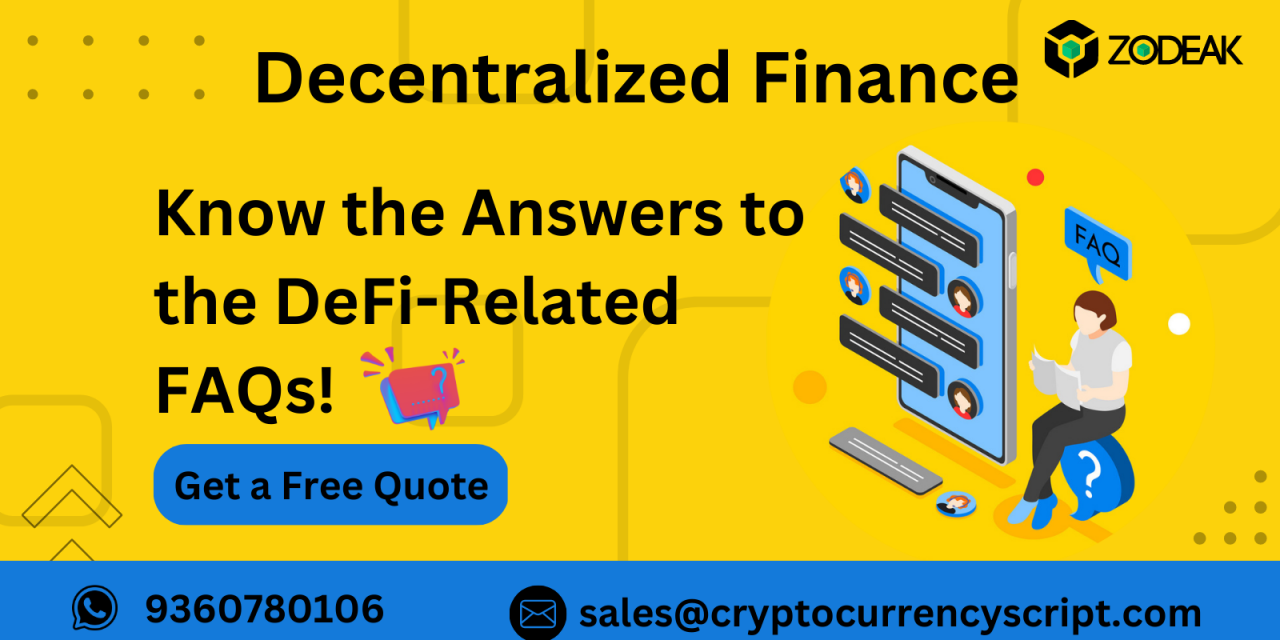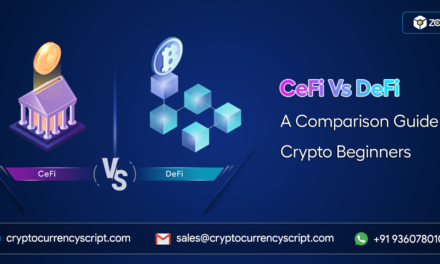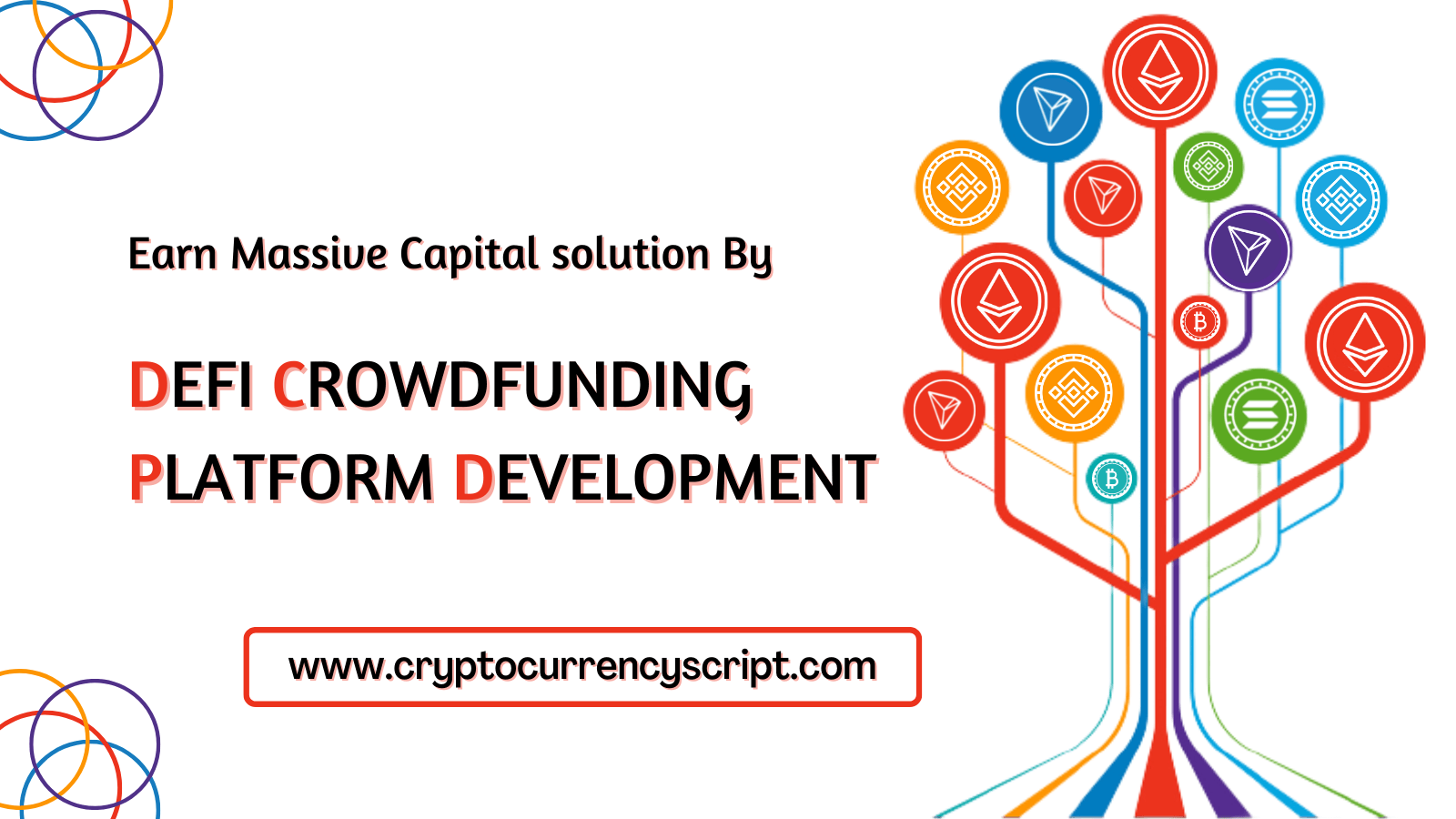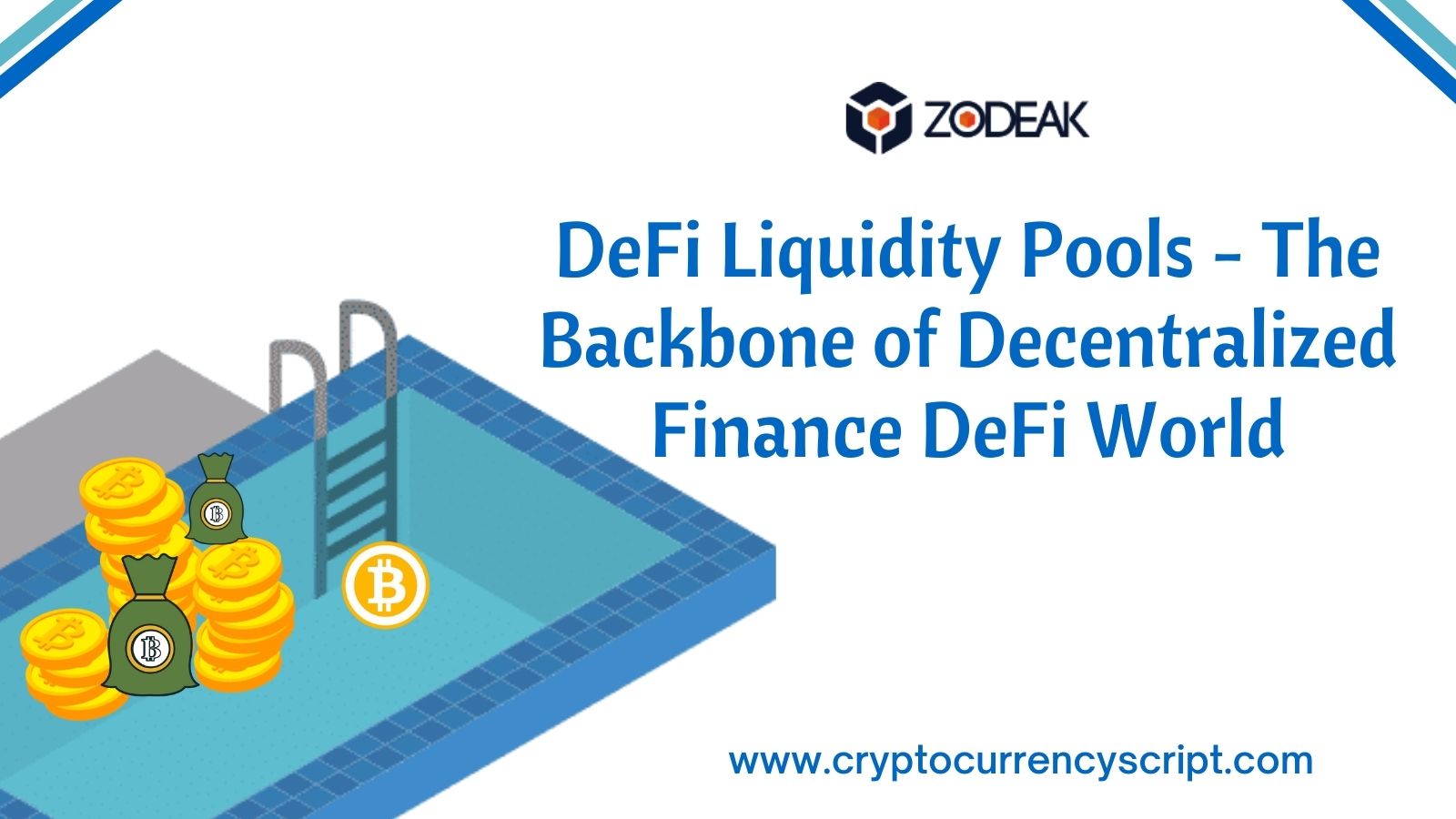Decentralized Finance (DeFi), the youngest child in the financial technology world, transforms the current centralized system into a decentralized one by utilizing various public blockchain networks. Although it is relatively new to fintech, it has gained popularity among crypto enthusiasts ever since its inception.
Despite 2022 being a challenging year for many cryptocurrencies, the DeFi development service continues to be the most adorable area for investment, outpacing centralized exchanges. Let’s see some of the questions swirling around Decentralized finance and along with that, we answer the most asked question of “Will DeFi reshape the future finance?” in this blog.
Here we go,
What is the difference between DeFi and CeFi?
DeFi is a blanket term for various financial applications, such as dApps, developed using smart contracts on the blockchain, while CeFi is short for “centralized finance”, a conventional financial business that operates as a private company dealing in crypto assets like cryptocurrencies or NFTs. The CeFi is not created using smart contracts on the blockchain.
What are the benefits of decentralized finance?
Blockchain technology, smart contracts, and dApps act as the nervous system for decentralized finance. Unlike CeFi, it offers various benefits to users on the platform. They are
- Permissionless
- No Intermediaries
- Transparency
- Interoperability
- Immutability
- Faster speed
- More control
How can decentralized finance become safer?
A sword only becomes safe when its wielders develop skills and an understanding of its dangers. Likewise, DeFi protocols will become more secure over time as the industry evolves. Although it offers a myriad of benefits over traditional finance, it is still in its infancy.
Therefore, every Decentralized finance project will learn from the mistakes of other projects. This makes the security of DeFi protocols evolve much faster than traditional systems.
Is it good to invest in decentralized finance?
Definitely, Defi is worth your investment. As DeFi projects are still in their infancy compared to CeFi and other traditional finance, the cumulative value of assets on DeFi platforms is already over $100 billion, So this trend will not fade out soon.
How to make money with DeFi?
DeFi is like an ocean, various financial products and services have been opening up many new avenues for its investors to capitalize on opportunities. It includes
- Staking cryptos
- Lending
- Liquidity providing
- Yield farming
- DeFi token development
- DeFi development service
- Smart contract development, etc.
What are some use cases of decentralized finance?
As we mentioned earlier that decentralized finance is an umbrella term, and it has many use cases in various fields. They are
1. Decentralized Exchange (DEX):
Decentralized transactions allow users to conduct peer-to-peer transactions while remaining in control of their funds because they operate without the need for a central authority. Since the exchange does not own the crypto assets, DEXs eliminate the risk of market manipulation, intrusion, and data theft.
2. Borrowing / Lending:
The DeFi ecosystem’s peer-to-peer lending and borrowing platform are the most popular among all. Users can obtain loans in decentralized finance without any bank account or application review.
Some dApps eliminate the need for the borrower to find a lender by using the smart contract itself as the lender, with interest rates determined by supply and demand. This platform thus streamlines and streamlines the loan and borrowing process.
3. Blockchain-based Game:
The flexibility of decentralized finance has given product developers more options for incorporating its protocols into platforms across numerous industries. Ethereum-based games have emerged as a prominent application for decentralized finance due to their integrated economies and creative incentive model.
For example, Axie Infinity, PoolTogether, etc. A game like PoolTogether is a no-loss DeFi audited game that lets players deposit DAI stablecoins to buy lottery tickets.
4. Stablecoins:
A stablecoin is any cryptocurrency that is linked to other cryptocurrencies, fiat currency, or precious metals. In order to reduce the volatility of cryptocurrency values and make blockchains a viable payment alternative, stablecoins were developed.
These stablecoins are now used in the DeFi platform for various purposes like lending/borrowing, payments, and institutional applications like Central Bank Digital Currency (CBDC).
5. Trading:
Trading occurs on a network of exchanges, liquidity pools, and markets that continue to expand and become more interconnected in the DeFi industry. It includes futures trading, margin trading, token swapping, and more. Crypto traders can benefit from reduced transaction fees, faster processing, and single custody of their assets thanks to decentralized exchanges.
6. Staking:
Users of cryptocurrencies will be able to stake their cryptocurrencies and make a profit from decentralized blockchain-based products. Also, the staking process enables users to contribute to a Proof of Stake (PoS) in the blockchain network.
The only requirement for the PoS mechanism is that validators have to stake some cryptos in the blockchain. Thus, users become validators soon after the locking process and start to earn rewards for verifying blocks on the network.
7. Marketplaces:
DeFi protocols enable users to exchange goods and services globally, from freelance coding assignments to digital collectibles to real-world real estate, sports items and apparel, and more.
These are the various use cases of decentralized finance in multiple products. Apart from the aforementioned sectors, DeFi finds applications in all decentralized businesses such as infrastructure tools, prediction markets, insurance, and identity management.
Well, I hope you liked all of our answers to some of the trending questions around DeFi. Now, let’s end this blog with the last and most anticipated questions, i.e
Will DeFi reshape future finance?
A large-scale financial system called DeFi is emerging for the first time in fintech history without the need for a third party for carry-on transactions and other activities. Although DeFi applications are still in their infancy compared to traditional banking solutions, they have already attracted millions of users and generated billions of dollars in market cap.
Besides, the decentralized global finance (DeFi) market is expected to reach $231.19 billion by 2030, compared to $11.78 billion in 2021. And yes! definitely decentralized finance will reshape the future of finance in the financial technology world. So, now is the time for startup entrepreneurs to invest in decentralized finance development right away to develop their own products with the best DeFi development company to conquer in the coming year 2023.










